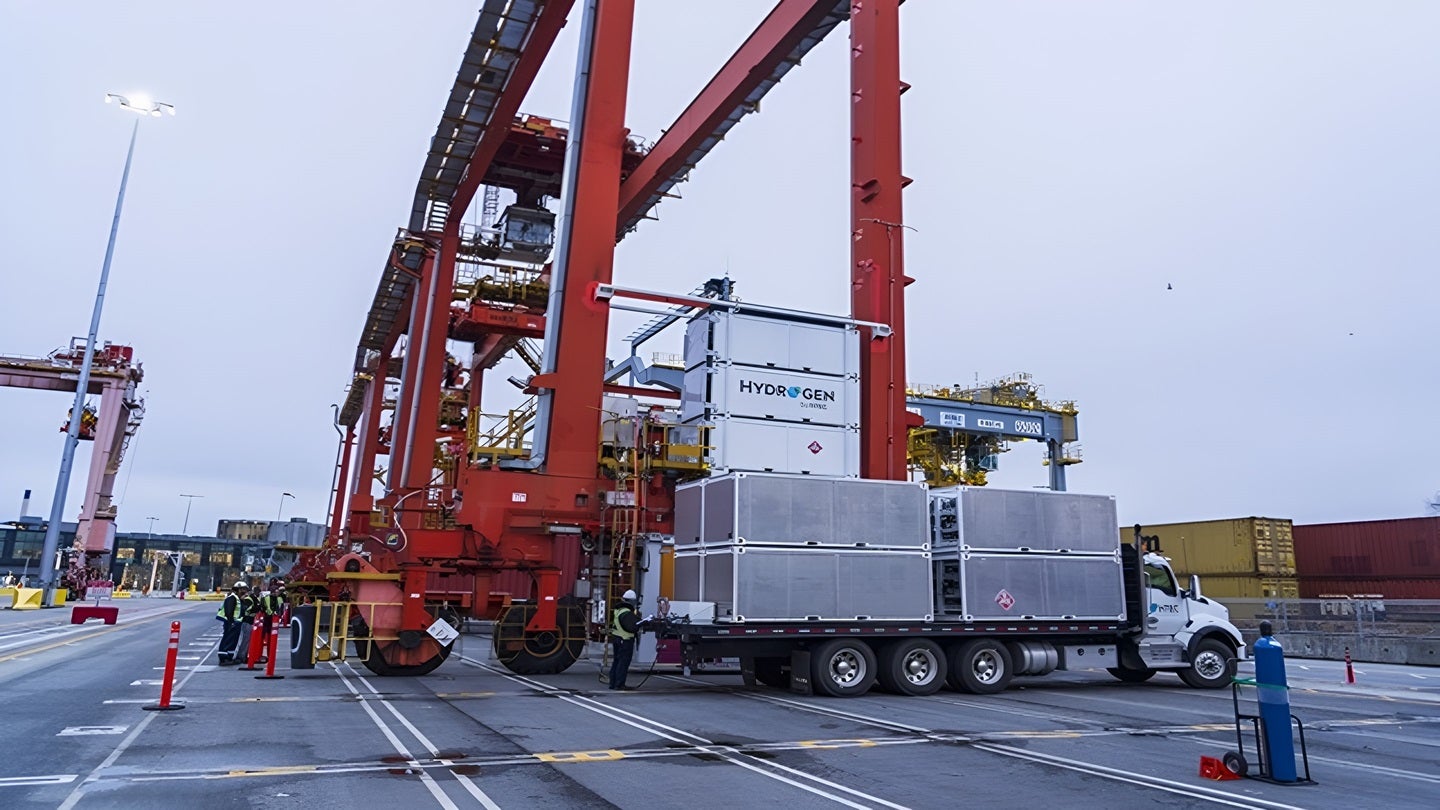DP World Advances Towards Decarbonisation with Hydrogen Fuel Cell Crane in Vancouver
Key Ideas
- DP World successfully completes initial testing of hydrogen fuel cell RTG crane at Port of Vancouver to reduce CO2 emissions.
- Collaboration with TYCROP Manufacturing, H2 Portable, and HTEC for the hydrogen initiative shows commitment to sustainable logistics.
- RTG crane retrofitted with hydrogen-electric generator, battery energy storage system, and hydrogen storage module for improved efficiency.
- Field trial underway to monitor hydrogen consumption, energy generation, and recovery, with potential conversion of 25 diesel RTG cranes to zero emissions.
DP World has completed initial testing of a hydrogen fuel cell rubber-tired gantry (RTG) crane at the Port of Vancouver in Canada, aiming to reduce CO2 emissions from its port operations. The RTG crane, capable of storing 135kg of compressed hydrogen, is part of a pilot project that includes retrofitting a diesel RTG crane with a hydrogen-electric generator, battery energy storage system, and hydrogen storage module. The field trial, which monitors hydrogen consumption and energy metrics, will assess the crane's efficiency and potential environmental benefits. If successful, DP World plans to convert 25 diesel-powered RTG cranes to zero emissions models. This initiative aligns with the company's commitment to decarbonisation and sustainable logistics practices.
Topics
Maritime
Renewable Energy
Environmental Impact
Decarbonisation
Port Operations
Hydrogen Technology
Field Testing
Latest News
